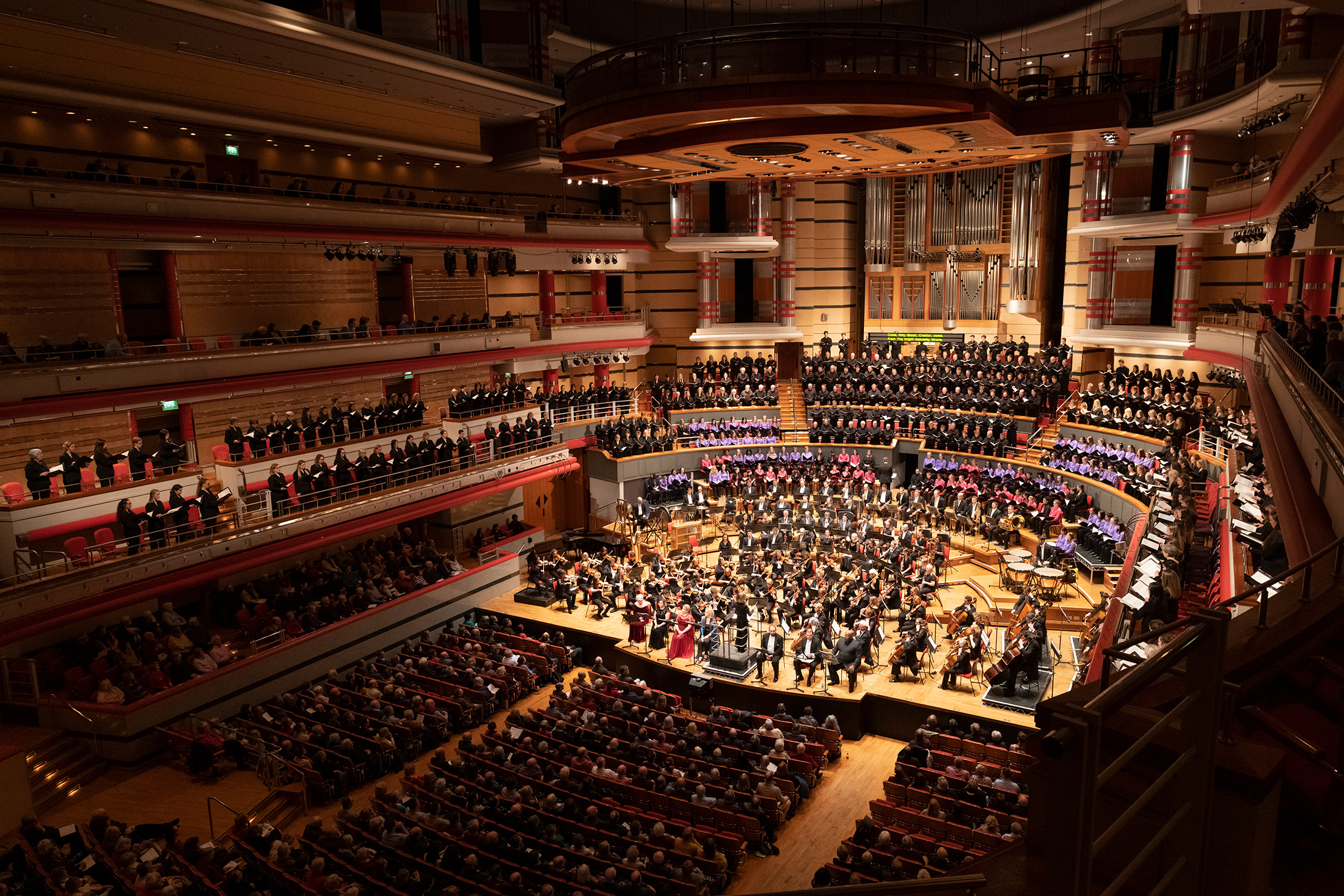I’m fairly certain though can’t absolutely be sure that Armenian American composer Alexey Shor won’t mind being described as being enigmatic in interviews. He quite tone, almost meek demeanour is endearing and also fascinating. He rarely gives much away in his responses to questions. From a journalistic point of view that is both infuriating and utterly absorbing.
Alexey and I meet in the Jumeirah Zabeel on the Palm Island in Dubai. He’s one of a range of artists participating in the International Music Festival in Dubai who’s staying in the larger than life hotel where the foyer is as big as any generous UK petrol station and accompanying Waitrose franchise.
Grandeur to be observed rather than indulged in
Walking to my interview with Alexey there’s a shopping mall feel to the interior of the hotel, only these retail opportunities demand burley masked men are positioned strategically along the route to the first floor restaurant. This isn’t only grandeur on a scale I’ve not experienced before but high-value grandeur, with a theatrical feel to it. Something to be observed rather than indulged in.
The journey triggers a similar feeling as standing at the bottom of the Bhurj Khalifa in Downtown Dubai. The tallest building in the world dominates the Dubai skyline staggering 832m, over eight times bigger than London’s Queen Elizabeth Tower. Little wonder Dubai’s epic scale leaves me feeling small, insignificant and inconsequential.
Composer Alexey Shor has a similar effect on me in interview. When you talk to a lot of people in interview – short intense bursts where information is exchanged with a certain predictable energy – anything that is different from the ‘norm’ presents challenges. Interviews are performances – for the interviewer and the interviewee. Both parties are exposing themselves. That’s long before the interview gets to be shared with anyone else.
And this interview has a real life audience too: Alexey’s personal assistant and his wife. I sit down at the big table around which we’re all sat as the door closes slowly behind me.
Questions questions questions
So, I start. “Tell me who you are and what you do and why you do what you do.”
Alexey responds. “I write classical music because I love writing classical music.”
Not the greatest of starts, but I press on regardless. “What do you especially love about writing classical music?”
“Pretty much everything except the final stages when the final edits need to be done. I love coming up with new melodies and developing the new melodies. Skipping the editing process and I love hearing it performed.
“I write melodies fairly easily. The musical ideas come to me without any effort. If I feel inspired very quickly. When something is finished I find myself in a difficult situation where I love the music I have written and I have to edit it. That’s when I have to be objective and look at it from a distance and imagine myself as an audience member who is not in love with.
What Alexey goes on to say about the torturous edit process is where we connect. I didn’t think that at the time, I have to admit. At the time I recall feeling like I was struggling to build rapport. But in the carefully constructed responses – considered – we connect. The challenge he experiences with his edit process, is similar to the edit process I experience. Shedding that which you have already miraculously conjured up is a difficult process. Saying farewell to your baby is difficult.
Pleasant vs. interesting
Next question. About the Clarinet Concerto he wrote, premiered by Shirley Brill pre-pandemic. Performed here in the International Music Festival in Dubai by Andreas Ottensamer. A fun piece, perhaps even the most well-conceived of his catalogue. I’m interested in exploring the influences I think I’ve heard (Mozart and Gershwin), plus what the differences were in the creation process – perhaps even the time taken.
And perhaps on reflection the question ‘Do you enjoy interviews?’ (above) is a little needy, though the response is fascinating. “I wouldn’t go as far as saying they’re pleasant, but maybe I find interviews interesting.” This is where in the interview I feel as though I’ve lost him a bit, or when I feel a little on edge. There is potential here that my work might potentially be seen as ‘interesting’, or that our exchange might be worthy of analysis. I had better up my game.
Either that or something has gone a little awry, which is why I ask the follow-up question, based on a bit of an in-the-moment hunch. ‘How are you with receiving compliements?’ Was that going a little too far? The reasoning is sound: I’m trying to access motivation and joy and passion. I am in a sense being really quite nosey. I’m in search of a bit of fire, as though the evidence of fire is the proof I need of creativity.
Let the music speak for itself
Where Alexey and I differ significantly is on the subject of backstory and context.
Its not an unorthodox view by any means. There are plenty of people I know back in the UK who would agree with Shor. They often mislabel the backstory and context as proof that music world demands prior knowledge before appreciation of its oh-so-precious art can be understood. They are the people who say “The music should speak for itself.” But for me and a significant number of others I know, the context and story creates a mystique around the performer or the work, not necessarily elevating either, but giving it a three-dimensional quality. Perhaps even giving it a sense of place or time, giving it life. I don’t need that as an audience member, but I appreciate it. And when its not evident I’m surprised by how much more I need it.
Maybe music is just a process
It’s unusual for me to conclude any kind of interview with a write-up like this. Part of the reason for exploring a selection of statements in the way that I have here is to remind myself of the person I met (for a second time), to observe things which perhaps went overlooked during the 25 minutes we had together.
And what emerges for me concluding this post isn’t so much what Alexey Shor says, but also what he doesn’t say. Those answers which leave me asking myself more questions, questions that highlight the assumptions and motivations I have in my questioning.
What Alexey’s responses and my subsequent mild frustrations reveal, is the age old tension between audience member and artist. Those of us who listen, look on the compositional and performance process with wonder and confusion. There is a grey area between what we hear and what we perceive went on ‘behind the scenes’. We look to both composer and performer to fill in the blanks for us. And in search of that we ask questions with an agenda in mind.
We tell ourselves a story about how a creative thinks and executes. Some of those imaginings are sentimental. But when an individual cuts through that and describes the process as it is for them – a transaction – then we might be left wanting. That I’m left wanting says far more about me than it does about Alexey Shor who, just like any Thoroughly Good Interviewee, has provided thought-provoking answers. Maybe part of classical music’s problem is that people like me expect to much of it and the people who create it.
InClassica International Music Festival is produced by the European Foudation for Support of Culture and SAMIT.


